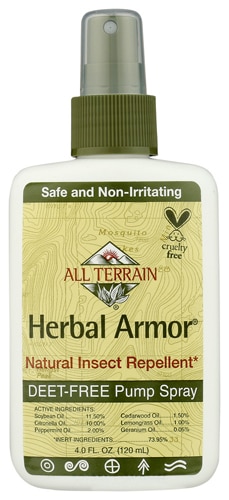From walking barefoot on the grass to having barbeques on balmy nights, summer is all about basking in nature’s wonders.
But one wonder of nature is far from appetizing—at least from a human’s perspective.
Bugs—and the bites that come with them—are rampant this time of year, buzzing out of flowers and trees with one (or so it seems) desire: To feast on your sun-warmed flesh.
Whether you’re battling mosquitoes in Florida or fighting off flies in California, one thing remains the same: You want to know how to keep bug bites at bay and away from your skin.
Here are the top five tricks to naturally repel those pesky pests so you can savor the season:
1. Eat strategically
Garlic does more than ward off vampires: Research suggests the pungent herb can organically stave off critters. Why? It’s heady enough to prevent mosquitos from devouring your arms and legs, in part because mosquitos (and other bugs) target their victims based on scent.
“Specifically,” nutritionist Monica Reinagel says, mosquitos’ “sensory organs are trained to zero in on sources of carbon dioxide and lactic acid because these chemicals lead to warm-blooded animals, like you and me.”
Other foodie options beside garlic include onions (which, if you’re feeling brave, you can rub directly onto your skin), apple cider vinegar, lemongrass, beans, lentils and tomatoes and chili peppers—their chief active compound, capsaicin, aggravates many species, including summertime creatures.
2. Use topical products
DEET—the most common insect repellant in existence—has become synonymous with thwarting creepy-crawlers (and flying monstrosities) but, due to reports of toxicity, has fallen out of favor in recent years.
However, “peruse the medial literature,” Prevention advises, “and you’ll find that adverse reactions are rare—and tend to occur only when people swallow or snort the stuff. Like anything you rub on your skin, DEET can cause an allergic reaction in some people. But used as directed, it's basically harmless and extremely effective.”
Still sound hazardous? Not to worry—there are hundreds of products to prevent mosquito bites on the market that may be equally effective. Look for products that contain lemon eucalyptus and picaridin—a synthetic compound that bears similarities to black pepper.
Alternatively, consider investing in a couple of bottles of Avon’s Skin-So-Soft. While no one is quite sure how this lovely-smelling bath oil works, its effectiveness is widely known. (According to Allen Lacy of The New York Times, “it seemed to work better than any of the insect repellents we had on hand, purchased specifically for bugs. It also smelled better.”)
Also, don’t forget the potency of citronella: The Asian staple has been used for centuries to fend off bugs. Keep the oil to your skincare items rather than candles, however. University of Florida mosquito expert Jonathan Day, PhD, explains that they “only work if their scent or smoke gets between you and the mosquito.”
Instead, consider keeping pots of lemon balm, lavender, basil and peppermint on your patio or in your yard—all have been shown to deter insects.
3. Dress thoughtfully
Bugs—and mosquitoes in particular—are drawn to dark colors, while bees and wasps may mistake your floral romp for the real thing. Opt for light-colored clothes that’ll help you blend into your environs. (Who wants to wear black on a scorching July day anyway?)
4. Be vigilant about standing water
From your dog’s water dish to an empty planter with a half-inch of water, many bugs –and especially mosquitos—breed in still water. Carefully drain items around your yard and house, keep your outdoor garbage cans clean, and be sure to check your bird feeders.
5. Burn some herb
As in clove, dried rosemary, catnip and frankincense, mind you. These herbs—as well as eucalyptus, thyme, pennyroyal, bay leaves, and mint—are a toxic-free way to prevent bugs from coming near (and prevent you from getting bitten). Burn them as loose incense or grind your choice of herbs into a fine powder and pair with a bonding agent (such as karaya) and saltpeter. Then, form into cones shapes, let dry, and light away.
If you do get nipped, rest assured that you can treat your wounds just as naturally: Calendula and arnica gels, as well as eucalyptus oil, are terrific anti-inflammatory solutions for bites and stings.




